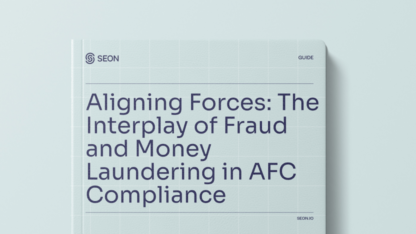Crypto exchanges are under fire, from fraudsters and regulators alike. In 2024, compliance costs for small to mid-sized firms surged by 22%, with 30% of budgets going to KYC and AML. Meanwhile, the SEC hit 583 crypto projects with $8.2 billion in fines, and DeFi platforms saw a 15% rise in operational costs due to new transparency rules.
Ignoring KYC is both risky and costly. The right tools can help exchanges fight fraud and stay compliant without draining resources. Let’s explore how smarter KYC solutions can keep both threats at bay.
What Is KYC in Crypto?
Crypto KYC (aka. Know Your Customer) is a legal requirement for centralized exchanges to verify their users’ identities. It is designed to ensure that their users do not use crypto to launder money, dodge income tax, or finance illegal activities.
With their inherent relationship with money and pseudonymous digital assets, crypto exchanges are particularly targeted by fraudsters and criminals, which is why governments have imposed growing KYC and identity verification regulations in recent years. However, KYC is still seen as an unwelcome obstacle by crypto exchanges and crypto enthusiasts. A 2019 report by the regtech Coinfirm claimed that 69% of crypto businesses did not have “complete and transparent” KYC procedures.
How Does KYC Work With Crypto?
KYC checks are similar in crypto to the process for traditional financial institutions. Government regulators set the rules, which must be adhered to depending on the crypto exchange’s geographical location.
In concrete terms, the cryptocurrency KYC process will need to verify the user’s:
- full name
- residential address
- date of birth
- ID document confirming the above
These checks can be performed manually, but they are more likely to be automated via KYC software, which can offer a risk-based approach and identity verification tools.
Since crypto exchanges are also mandated to follow anti-money laundering regulations, it is also beneficial to combine KYC and AML checks, which include PEP checks, sanction checks, and adverse media checks.
Note that some crypto exchanges are also required to monitor users on an ongoing basis, for instance, through transaction monitoring.
The Benefits of Using KYC in Crypto
Using some type of KYC step at onboarding is very beneficial for crypto exchanges and platforms, for several reasons. Let’s take a closer look:
- Boosts compliance: In several locales, KYC is a legal requirement in crypto and fintech. Failure to do your KYC due diligence can result in fines or even licensing issues linked to AML and CFT legislation.
- Reduces fraud: Implementing KYC protocols prevents fraud of all types, as you learn more about your customers and can monitor (or outright block) anyone who appears to be high-risk.
- Increases trust: Implementing robust KYC can increase consumer trust, as it demonstrates to your customers that you take their business seriously and follow the law.
- Protects the ecosystem: KYC is a step to help protect the financial ecosystem, preventing money laundering, terrorism financing, and other fraud.
- Protects your reputation: Your crypto platform’s reputation is similarly boosted and protected as you can demonstrate the solid steps you’ve taken to protect customers’ assets and accounts.
- Promotes the crypto vision: Customers who may have felt hesitant to invest in crypto are more likely to engage once they trust they are in legitimate, safe hands. This way, everyone wins.
The Challenges of KYC in Crypto
Crypto exchanges face significant challenges with KYC, even when aiming to meet regulatory standards. Here are four key reasons why:
- Fake IDs and fraudulent tactics: Fraudsters have a range of tools to bypass KYC checks, from synthetic IDs to deepfake videos, making it easier for them to create fake profiles on crypto exchanges.
- Balancing user experience and security: While users want quick access to volatile crypto markets, too many obstacles during onboarding can lead to increased churn and the loss of potential loyal customers.
- Conflict with crypto ideals: Many crypto enthusiasts believe that the technology should be free from traditional financial regulations. However, regulators disagree, and crypto exchanges often need to incentivize users to complete KYC steps, such as offering special deals.
- Compliance risks: Failing to implement the right KYC measures can result in hefty fines.

A reward offered by a crypto exchange for completing the KYC process.
SEON uses email, phone and IP data to build a digital footprint and detect bad actors before KYC.
Ask an Expert
Best Tools and Features For Crypto KYC
Crypto exchanges typically rely on automated KYC tools, and the right software should include these essential features:
1. ID Selfie and Liveness Verification
Modern identity verification software simplifies integrating document checks with ID selfie and video verification, helping ensure the authenticity of users. While these checks add an extra layer of security, they also enhance the onboarding experience by preventing fraudulent identities.
2. Digital Footprint Analysis
Digital footprint analysis provides insights based on digital signals, such as email, phone number and IP, helping identify risks and flag suspicious IPs, free email services and high-risk devices, creating a comprehensive risk profile before completing the KYC process
3. Device Intelligence
Device intelligence encompasses a wide range of unique device data, such as software and hardware combinations, to identify users at the KYC stage. Analyzing this data helps detect high-risk agents using emulators or virtual machines, allowing exchanges to avoid unnecessary checks for potentially fraudulent accounts.
4. Blockchain ID Validation
Blockchain technology offers a promising but emerging solution for ID verification, particularly for users who value anonymity. While promising in terms of efficiency and cost, blockchain KYC is still in the early stages and may not be widely adopted.
How Does Digital Footprint Analysis Help KYC in Crypto?
SEON has a proven track record in helping crypto exchanges streamline KYC checks and reduce chargebacks caused by fraudulent credit card purchases. Here’s why digital footprint analysis is a game-changer for ID verification too:
- Eliminates friction: Powered by real-time data, SEON’s digital footprint analysis can be seamlessly integrated, making the process smoother and faster for both users and exchanges.
- Saves money: As a pre-filter, it helps block low-quality or fraudulent users before costly KYC checks are triggered. This ensures that you don’t waste resources vetting obvious fraudsters.
- Enhances intelligence: Digital footprint analysis, especially when combined with device intelligence, adds an extra layer of insight to your KYC and AML processes, particularly during manual reviews. For example, even if a user passes ID verification, you can still flag suspicious activity — like the absence of social media profiles or the use of VPNs and emulators — and choose to examine them more closely.
SEON offers a complete set of fraud fighting tools that grow with your business
Speak with an expert
Frequently Asked Questions
Crypto exchanges have to verify IDs and perform KYC checks as a legal requirement. They face hefty fines from authorities if they don’t, regardless of where they are based.
IDV verification in cryptocurrency is the process by which crypto exchanges check the official ID documents and proof of address of new customers in order to be certain that these individuals are who they say they are. IDV is one of the main KYC requirements in cryptocurrency.
This can involve asking them to upload scans of their passports or driver’s licenses, for example, or to join a video chat with an agent who will ask them to speak their name and show these documents to the camera.
No, crypto wallets do not need to conduct KYC on their customers. However, crypto exchanges who also provide wallets will need to do KYC, unless they keep the two products entirely separate. What’s more, certain wallet operators may choose to do KYC proactively. As a consumer, you can choose to use a crypto wallet that does not require KYC compliance, or one that does.
Sources
- CoinDesk: Most Crypto Exchanges Still Don’t Have Clear KYC Policies: Report
- Compliance Week: Bitcoin platform operator fined $60M for AML violations
- Finextra: HSBC joins UAE KYC Blockchain platform








